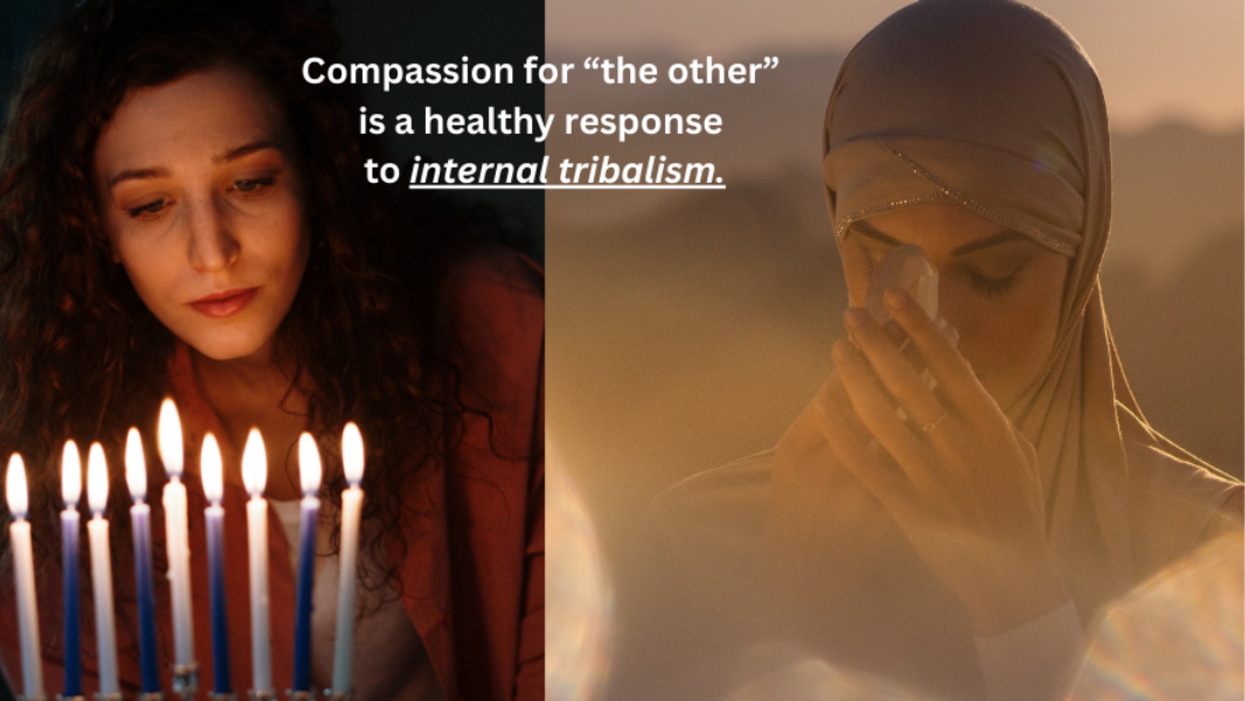Molineaux is the former co-publisher of The Fulcrum and president/CEO of the Bridge Alliance Education Fund.
As we watch the tragedies continue in war and conflict zones, we seem to have forgotten our shared humanity. The worst cruelties bring out our need to protect and be protected, which often means responding with cruelty or inhumane actions; we don't know what else to do to prevent more harm to those who need protection.
Protection is important but the use of cruelty sets up a downward spiral that moves us further from recognizing our shared humanity. Just as we cannot bomb our way to peace, we cannot allow our internal tribalism to rule our hearts. I use the term "tribalism" as defined by Dr. Justin James Kennedy, who identifies the neuroscience behind human group identity formation.
When we internalize and elevate our in-group as more important than any other group, our tribal identity becomes a weapon that can be used by authoritarians around the world.
Tribalism is attractive to politicians, because in many ways it is easier than democracy. It abolishes democracy’s inconvenient demand for accountability: failure to deliver real benefits to one’s community is forgivable so long as the other side is faring worse.
As we saw in Northern Ireland, awful consequences—up to and including killing, maiming, and economic collapse—don’t diminish the power of tribalism. They enhance it, because suffering deepens the sense of victimhood that fuels this kind of politics. Self-harm and self-pity form a feedback loop of endlessly renewable political energy. And this perpetual motion machine is also driven by revenge. If you hurt the other side, they will hurt you back, and when they do they prove themselves to be the incorrigible enemies you always knew they were.
Atrocities, even when they are committed by a tiny minority of people, cease to be individual crimes that should be punished by law and become sources either for collective outrage (if they did it to us) or for collective excuses (if we did it to them). Fintan O'Toole writes in the New York Review of Susan Nieman's Left is Not Woke. If you experience pleasure when the "the other" is harmed, you have internalized a tribal identity. Any form of glee, satisfaction, self-righteousness at hearing about or witnessing human suffering of another tribal identity weakens our resolve to self-govern in a democracy.
In Nieman's book, she writes, "What concerns me most here are the ways in which contemporary voices considered to be leftist have abandoned the philosophical ideas that are central to any left-wing standpoint: a commitment to universalism over tribalism, a firm distinction between justice and power, and a belief in the possibility of progress."
What are the universal values you hold? And do you hold these values for all people? Or just your tribe.
Compassion is not a sport. It's a life-giving skill that requires renewed commitment each moment. Commit wisely.




















Marco Rubio is the only adult left in the room